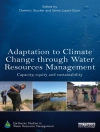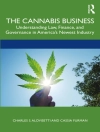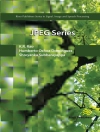Climate change is perhaps among the most serious challenges that humankind has ever faced and perhaps the greatest market failure the world has ever seen. At the same time, clean unutilized energy resources around the world are available that could help remedy climate and environmental problems while also improving people’s lives. It is likely that most of the increased demand for energy in the future will be in the developing and emerging world. This is also where most unutilized clean energy sources are located. The challenge of climate change requires strong comprehensive and firm action from the international community. Clean energy projects tend to be large, capital intensive and long term. They require long term commitment from all the players involved as well as mutual trust. International financial institutions (IFIs), including the World Bank Group and regional development banks can play a key role in promoting the use of clean energy sources by facilitating clean energy investment in developing and emerging markets. This book focuses on those challenges, mainly using geothermal energy projects as examples, but also by providing an example of a large hydropower project to illustrate how the funding and risk mitigation instruments of IFIs, as well as national agencies such as export credit agencies (ECA)s, have been used to mobilize funds in a difficult investment environment. The book is divided into eleven chapters. Chapter One discusses the current global investment regime and the absence of an international organization for investments comparable to the World Trade Organization that focuses on cross border trade. Chapter Two examines the World Bank Group and its emphasis on loans instead of guarantees for capital mobilization. Chapter Three discusses international financial institutions, including regional development banks and their risk mitigation instruments. Chapter Four focuses on how IFIs can make more use of their instruments to support cross border clean energy projects in developing and emerging economies. Chapter Five assesses the effectiveness of the risk mitigation instruments used by the World Bank Group. Chapter Six analyses the upfront development costs associated with geothermal development and geothermal projects. Chapter Seven analyses the costs and benefits of deploying public-private partnerships for clean energy projects. Chapter Eight focuses on contested multilateralism and the recent establishment of new international financial institutions under Chinese leadership, i.e. the Asian Infrastructure Investment Bank and the New Development (BRICS) Bank. Chapter Nine examines Iceland with its geothermal cluster as well as how developing and emerging countries could learn from Iceland’s experience. Chapter Ten analyses selected cross border clean energy projects, including geothermal and hydropower, and shows how various funding and risk mitigation instruments have been used in practice. Chapter Eleven stresses the urgency for global action to address the climate crisis facing humankind. Finally, the concluding chapter shows how international financial institutions can be key instruments for successful global climate solutions. The book draws on the author’s experience in three continents (Africa, Asia and Europe) as a staff member of the World Bank Group.
Hilmar Azor Hilmarsson
International Financial Institutions, Climate Change and the Urgency to Facilitate Clean Energy Investment in Developing and Emerging Market Economies [PDF ebook]
International Financial Institutions, Climate Change and the Urgency to Facilitate Clean Energy Investment in Developing and Emerging Market Economies [PDF ebook]
Bu e-kitabı satın alın ve 1 tane daha ÜCRETSİZ kazanın!
Biçim PDF ● Sayfalar 183 ● ISBN 9781536102154 ● Editör Hilmar Azor Hilmarsson ● Yayımcı Nova Science Publishers ● Yayınlanan 2017 ● İndirilebilir 3 kez ● Döviz EUR ● Kimlik 7216083 ● Kopya koruma Adobe DRM
DRM özellikli bir e-kitap okuyucu gerektirir












